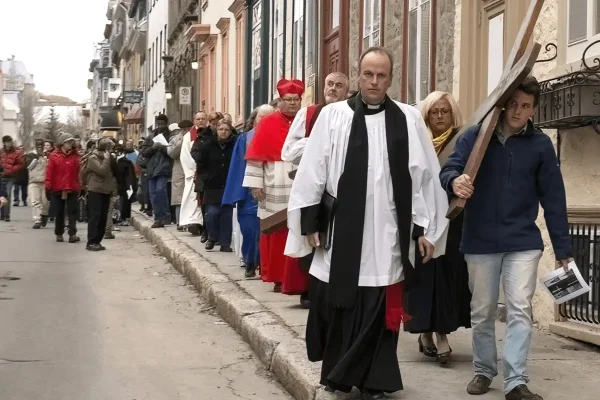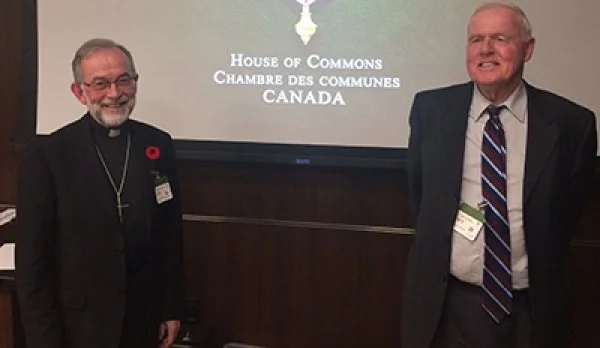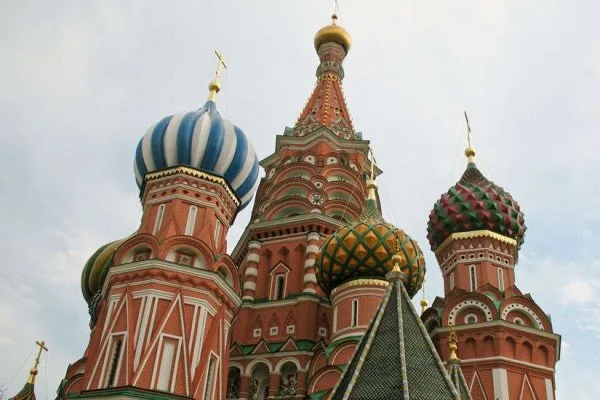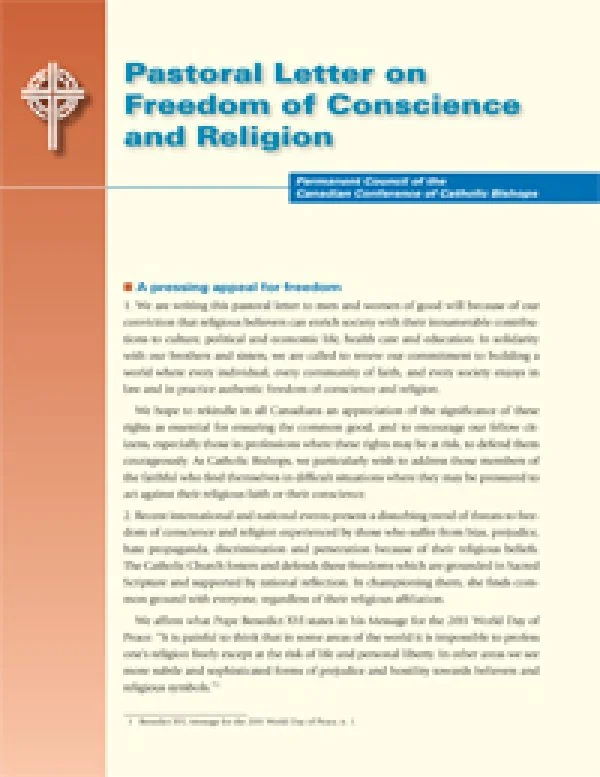- Français
- |
- Booklist
- |
- Week of Prayer
- |
- Links
- Areopagus - a forum for dialogue
- Academic journals
- Acronyms
- Bible tools
- Bibliographies
- Booksellers and publishers
- Churches
- Canadian church headquarters
- Directory of Saskatchewan churches
- Retreat centres
- Saskatchewan church and non-profit agencies
- Ecumenism.net Denominational links
- Anabaptist & Mennonite
- Anglican
- Baptist
- Evangelical
- Independent episcopal
- Lutheran
- Methodist, Wesleyan, and Holiness
- Miscellaneous
- Mormon
- Orthodox (Eastern & Oriental)
- Para-church ministries
- Pentecostal / charismatic
- Presbyterian & Reformed
- Quaker (Society of Friends)
- Roman & Eastern Catholic
- United and uniting
- Documents of Ecumenical Interest
- Ecumenical agencies
- Ecumenical Booklist
- Ecumenical Dialogues
- Glossary
- Human rights
- Inter-religious links
- Justice & peace
- Lectionaries
- Religious news services
- Resource pages
- Search Ecumenism.Net
- |
- Documents
- Ancient & Medieval texts
- Ecumenical Dialogues
- Interreligious
- Anabaptist & Mennonite
- Anglican
- Evangelical
- Lutheran
- Orthodox
- Reformed & Presbyterian
- Roman & Eastern Catholic
- United & Uniting
- Miscellaneous churches
- Canadian Council of Churches (CCC)
- Conference of European Churches (CEC)
- Interchurch Families International Network (IFIN)
- National Council of Churches in Australia (NCCA)
- Lausanne Committee for World Evangelism (LCWE)
- World Council of Churches (WCC)
- Other ecumenical documents
Church traditions
Documents from ecumenical agencies
- |
- Dialogues
- Adventist-Reformed
- African Instituted Churches-Reformed
- Anglican-Lutheran
- Anglican-Orthodox
- Anglican-Reformed
- Anglican-Roman Catholic
- Anglican-United/Uniting
- Baptist-Reformed
- Disciples of Christ-Reformed
- Disciples of Christ-Roman Catholic
- Evangelical-Roman Catholic
- Lutheran-Mennonite
- Lutheran-Mennonite-Roman Catholic
- Lutheran-Reformed
- Lutheran-Roman Catholic
- Mennonite-Reformed
- Mennonite-Roman Catholic
- Methodist-Reformed
- Methodist-Roman Catholic
- Oriental Orthodox-Reformed
- Orthodox-Reformed
- Orthodox-Roman Catholic
- Pentecostal-Reformed
- Prague Consultations
- REC-WARC Consultations
- Roman Catholic-Lutheran-Reformed
- Roman Catholic-Reformed
- Roman Catholic-United Church of Canada
- |
- Quick links
- Canadian Centre for Ecumenism
- Canadian Council of Churches
- Ecumenical Shared Ministries
- Ecumenism in Canada
- Interchurch Families International Network
- International Anglican-Roman Catholic Commission for Unity and Mission
- Kairos: Canadian Ecumenical Justice Initiatives
- North American Academy of Ecumenists
- Prairie Centre for Ecumenism
- Réseau œcuménique justice et paix
- Week of Prayer for Christian Unity
- Women's Interchurch Council of Canada
- World Council of Churches
- |
- Archives
- |
- About us
Archive for tag: religious freedom
Archive pour tag : religious freedom
The Quebec government will be expanding its secularism rules across public institutions in a new bill that is expected to be tabled Thursday.
Various media outlets in the province confirmed the contents of the new bill, which includes a ban on prayer rooms in universities and CEGEPs, restricting the offering of religious-based meals and banning religious symbols in communications by public institutions.
… Read more » … lire la suite »

 Permanent link: ecumenism.net/?p=14698
Permanent link: ecumenism.net/?p=14698
Categories: Catholic Register • In this article: Québec, religious freedom, secularism

 Lien permanente : ecumenism.net/?p=14698
Lien permanente : ecumenism.net/?p=14698
Catégorie : Catholic Register • Dans cet article : Québec, religious freedom, secularism
We the undersigned leaders of diverse faith communities and organizations in Canada, call on the Prime Minister and the Government of Canada to amend the Canada Summer Jobs guidelines and application process so that it does not compel agreement or belief, and allows religious organizations to stay true to their communal identity and beliefs. The new application requires each organization to give non-negotiable and unqualified affirmation of certain beliefs held by the current government.
Canada has a long history of cooperation and collaboration between religious organizations and governments in our health care and social welfare systems, and in many other areas of life.
Faith-based organizations wish to continue to partner with the federal government in delivering programming and services to vulnerable members of their local communities, including children and youth, newcomers to Canada, and people experiencing poverty and homelessness.
… Read more » … lire la suite »

 Permanent link: ecumenism.net/?p=9831
Permanent link: ecumenism.net/?p=9831
Categories: Documents • In this article: Canada Summer Jobs, Government of Canada, interfaith, religious freedom, statements

 Lien permanente : ecumenism.net/?p=9831
Lien permanente : ecumenism.net/?p=9831
Catégorie : Documents • Dans cet article : Canada Summer Jobs, Government of Canada, interfaith, religious freedom, statements
Over 60 faith leaders and organizations in Canada have signed a letter addressed to The Honourable Jody Wilson-Raybould, Minister of Justice and Attorney General of Canada, concerning the removal of section 176 from the Criminal Code of Canada, as proposed under Clause 14 of Bill C-51, “An Act to Amend the Criminal Code and the Department of Justice Act and to Make Consequential Amendments to Another Act”. The interfaith letter was co-authored by the Canadian Conference of Catholic Bishops (CCCB), The Evangelical Fellowship of Canada, and the Association for Reformed Political Action. Representatives from a variety of faith traditions have endorsed the letter, including from the Sikh, Jewish, Muslim, Catholic, Orthodox, Protestant, and Buddhist traditions.
The Conference also intervened on 30 October 2017 concerning Clause 14 of Bill C-51, which included a written submission to the House of Commons’ Standing Committee on Justice and Human Rights, followed by oral presentations before the Standing Committee by the Most Reverend Lionel Gendron, P.S.S., Bishop of Saint-Jean-Longueuil and President of the CCCB and His Eminence Thomas Cardinal Collins, Archbishop of Toronto, with the assistance of Mr. Bruce F. Simpson, a partner specialized in criminal law with Barnes Sammon LLP.
… Read more » … lire la suite »

 Permanent link: ecumenism.net/?p=9803
Permanent link: ecumenism.net/?p=9803
Categories: News • In this article: Canada, criminal justice, interfaith, religious freedom

 Lien permanente : ecumenism.net/?p=9803
Lien permanente : ecumenism.net/?p=9803
Catégorie : News • Dans cet article : Canada, criminal justice, interfaith, religious freedom
Yesterday, the Supreme Court of Canada reaffirmed that government actors have a duty to specifically consider religious freedom concerns when raised by claimants in its Ktunaxa Nation v. British Columbia decision. This historic case – the first Indigenous religious freedom claim to be heard by the Supreme Court – raised questions about the scope of religious freedom, and the means by which religious communities can practise and manifest their faith. Christian Legal Fellowship (CLF) and The Evangelical Fellowship of Canada (EFC) jointly intervened in the case.
The litigation arose from a proposed ski resort on land that is sacred to the Ktunaxa people. The Ktunaxa Nation opposed the development on the basis that it would desecrate the sacred site and would interfere with a variety of their spiritual practices.
The British Columbia Minister of Forests, Lands and Natural Resources approved the development but did not specifically address how the decision would impact the Ktunaxa Nation’s section 2(a) Charter right to freedom of religion.
The Supreme Court upheld the Minister’s ultimate decision; however, the Court was divided 7-2 on some of their underlying reasons.
… Read more » … lire la suite »

 Permanent link: ecumenism.net/?p=9777
Permanent link: ecumenism.net/?p=9777
Categories: News • In this article: Canada, Indigenous peoples, religious freedom, Supreme Court

 Lien permanente : ecumenism.net/?p=9777
Lien permanente : ecumenism.net/?p=9777
Catégorie : News • Dans cet article : Canada, Indigenous peoples, religious freedom, Supreme Court
Several American-based religious denominations remain defiant in the face of new laws that would ban them from proselytizing in Russia.
The so-called “Yarovaya laws” make it illegal to preach, proselytize or hand out religious materials outside of specially designated places. The laws also give the Russian government wide scope to monitor and record electronic messages and phone calls.
The package of laws, billed as anti-terrorism measures, were passed by the Russian Duma, or parliament, on June 24, and signed by Russian president Vladimir Putin on July 7.
The United States Commission on International Religious Freedom, a bipartisan government panel which makes policy recommendations, condemned the new laws.
“These deeply flawed anti-terrorism measures will buttress the Russian government’s war against human rights and religious freedom,” Thomas J. Reese, a Jesuit priest and chair of the commission said after the measures were passed. “They will make it easier for Russian authorities to repress religious communities, stifle peaceful dissent, and detain and imprison people.”
… Read more » … lire la suite »

 Permanent link: ecumenism.net/?p=9361
Permanent link: ecumenism.net/?p=9361
Categories: RNS • In this article: human rights, religious freedom, Russia

 Lien permanente : ecumenism.net/?p=9361
Lien permanente : ecumenism.net/?p=9361
Catégorie : RNS • Dans cet article : human rights, religious freedom, Russia
Religious leaders across Saskatchewan say doctors who don’t want to help patients die shouldn’t be forced to refer them to another physician who will.
Christian, Muslim and Jewish leaders met with Health Minister Dustin Duncan at the Saskatchewan legislature Tuesday and said facilities should not be forced to help people end their lives either. Duncan said the province is looking at ways to accommodate those concerns about the new federal law that allows medical assisted dying.
The law says doctors can’t be forced to provide the service. But the College of Physicians and Surgeons of Saskatchewan policy also says they “must not abandon a patient who makes this request” and they need to arrange “timely access” to another physician or resources.
“We also feel that people do have a right to information,” said Mary Deutscher, with the justice and peace commission of the Roman Catholic Diocese of Saskatoon. “We have no problem with providing that information, but there’s something different about a direct referral, that actually says that you need to find someone who will carry through on what we see as a very harmful action. Do you want to force doctors to have to harm people that they care for? And many of these doctors do see this as a harmful action.”
… Read more » … lire la suite »

 Permanent link: ecumenism.net/?p=9204
Permanent link: ecumenism.net/?p=9204
Categories: News • In this article: freedom of conscience, palliative care, physician assisted suicide, religious freedom, Saskatchewan

 Lien permanente : ecumenism.net/?p=9204
Lien permanente : ecumenism.net/?p=9204
Catégorie : News • Dans cet article : freedom of conscience, palliative care, physician assisted suicide, religious freedom, Saskatchewan
An historic consultation of church leaders, drawn from 56 nations, to focus on intensifying ‘discrimination, persecution and violence’ against Christian communities around the world has called on churches globally to pray, support and be in solidarity with those suffering persecution due to their faith. In a two pronged response the leaders: offered “repentance” for times when churches had “persecuted each other and other religious communities in history”; and, urged churches “to urgently strengthen the solidarity of all Christians” in the face of discrimination, persecution and martyrdom in the 21st century. In a greeting from the Vatican, Pope Francis said, “I think with great sadness of the escalating discrimination, and persecution against Christians in the Middle East, Africa and Asia and elsewhere throughout the world. “In various parts of the world, the witness to Christ, even to the shedding of blood, has become a shared experience of Catholics, Orthodox, Anglicans, Protestants, Evangelicals and Pentecostals,” he said. The consultation also called on governments to “respect and protect the freedom of religion and belief of all people as a fundamental human right.”
… Read more » … lire la suite »

 Permanent link: ecumenism.net/?p=8857
Permanent link: ecumenism.net/?p=8857
Categories: Communiqué, News • In this article: Global Christian Forum, persecution, religious freedom

 Lien permanente : ecumenism.net/?p=8857
Lien permanente : ecumenism.net/?p=8857
Catégorie : Communiqué, News • Dans cet article : Global Christian Forum, persecution, religious freedom
The President of the CEI has decided to propose to all communities – not only Italian – the dedication of the next Vigil of Pentecost (May 23, 2015) to contemporary martyrs, to the tragedy of so many Christians and many people whose fundamental rights to life and to religious freedom are systematically violated: “This situation challenges us deeply and compels us to join in a grand gesture of prayer to God and closeness to these brothers”.
“There is a strong bond that already unites us, beyond every division is the witness of Christians belonging to Churches and traditions, victims of persecution and violence just because of the faith they profess.” With these words, the Holy Father received members of the Anglican-Roman Catholic International Commission (30 April 2015). This was only the last of many interventions by the Pope regarding the tragedy of so many Christians and many people whose fundamental rights to life and to religious freedom are systematically violated.”
… Read more » … lire la suite »

 Permanent link: ecumenism.net/?p=8312
Permanent link: ecumenism.net/?p=8312
Categories: News • In this article: Christian, persecution, prayer, religious freedom

 Lien permanente : ecumenism.net/?p=8312
Lien permanente : ecumenism.net/?p=8312
Catégorie : News • Dans cet article : Christian, persecution, prayer, religious freedom
Discrimination, persecution and violence against Christians and churches around the world is set for further exposure after a group representing high profile Christian churches and organizations agreed to pursue together an international response on the issue.
A meeting convened by the Global Christian Forum in Strasbourg, France, including representatives from the Vatican, the World Council of Churches, the World Evangelical Alliance and the Pentecostal World Fellowship, agreed on 9 September to press ahead with a global gathering on the issue of ‘Christian discrimination, persecution and martyrdom’ for late 2015.
… Read more » … lire la suite »

 Permanent link: ecumenism.net/?p=7775
Permanent link: ecumenism.net/?p=7775
Categories: News • In this article: Dicastery for Promoting Christian Unity, Global Christian Forum, martyrdom, Pentecostal World Fellowship, persecution, religious freedom, WCC, World Evangelical Alliance

 Lien permanente : ecumenism.net/?p=7775
Lien permanente : ecumenism.net/?p=7775
Catégorie : News • Dans cet article : Dicastery for Promoting Christian Unity, Global Christian Forum, martyrdom, Pentecostal World Fellowship, persecution, religious freedom, WCC, World Evangelical Alliance
The Presbyterian Church in Canada‘s Presbytery of Montreal has adopted a response to Bill 60 – the Québec Charter of Values.
“We acknowledge and celebrate the unique identity of Quebec as a Francophone nation and province within Canada, and acknowledge the particular religious and cultural history that has shaped its values, laws, and social fabric. We also acknowledge and celebrate the presence of other linguistic and cultural communities within Quebec – including a large Anglophone minority – and celebrate the contributions such communities have made to the history, identity, and success of Quebec as a liberal democratic polity. We believe that Quebec has been enriched by this diversity.”
… Read more » … lire la suite »

 Permanent link: ecumenism.net/?p=7253
Permanent link: ecumenism.net/?p=7253
Categories: News • In this article: Presbyterian Church in Canada, Québec, religious freedom

 Lien permanente : ecumenism.net/?p=7253
Lien permanente : ecumenism.net/?p=7253
Catégorie : News • Dans cet article : Presbyterian Church in Canada, Québec, religious freedom
The Canadian Conference of Catholic Bishops (CCCB) today released a pastoral letter on freedom of conscience and religion. Issued by the CCCB Permanent Council, the letter expresses concern about an “aggressive relativism” in Canada that seeks to relegate religion to the private sphere.
“Legitimate secularity draws a distinction between religion and politics, between Church and state,” the pastoral letter states, but is open to the engagement of religious beliefs and faith communities in public debate and civic life. “Radical secularism”, however, excludes religion from the public square “and from freely engaging in the public debate necessary for shaping civic life.”
… Read more » … lire la suite »

 Permanent link: ecumenism.net/?p=2170
Permanent link: ecumenism.net/?p=2170
Categories: Documents, Resources • In this article: bishops, Canada, Catholic, CCCB, religious freedom

 Lien permanente : ecumenism.net/?p=2170
Lien permanente : ecumenism.net/?p=2170
Catégorie : Documents, Resources • Dans cet article : bishops, Canada, Catholic, CCCB, religious freedom
An international study process developed by the World Council of Churches (WCC) is preparing a report on freedom of religion as a fundamental human right for all.
The fundamental rights of freedom of religion or belief are often violated by both governments and individuals, acting either on their own behalf or as members of majority groups. Despite significant initiatives taken by states and the international community, religious minorities in several parts of the world are becoming the targets of discrimination, acts of violence or hostility and persecution because of their religion.
The extent to which freedom of religion or belief can be considered as an absolute right in pluralistic societies, as well as its relation to various aspects of human rights, was the centre of discussion among experts who participated at an international consultation organized by the WCC’s Commission of the Churches on International Affairs (CCIA).
… Read more » … lire la suite »

 Permanent link: ecumenism.net/?p=1827
Permanent link: ecumenism.net/?p=1827
Categories: WCC News • In this article: human rights, religious freedom, WCC

 Lien permanente : ecumenism.net/?p=1827
Lien permanente : ecumenism.net/?p=1827
Catégorie : WCC News • Dans cet article : human rights, religious freedom, WCC
The Centre for Inter-Religious Dialogue of the Islamic Culture and Relations Organisation (Tehran, Iran) and the Pontifical Council for Inter-religious Dialogue held their seventh colloquium in Tehran from 9 to 11 November under the joint presidency of Mohammad Baqer Khorramshad, president of the Islamic Culture and Relations Organisation, and of Cardinal Jean-Louis Tauran, president of the Pontifical Council for Inter-religious Dialogue.
… Read more » … lire la suite »

 Permanent link: ecumenism.net/?p=1608
Permanent link: ecumenism.net/?p=1608
Categories: Communiqué, Dialogue • In this article: Catholic, Dicastery for Interreligious Dialogue, interfaith, Iran, Islam, religious freedom, Vatican

 Lien permanente : ecumenism.net/?p=1608
Lien permanente : ecumenism.net/?p=1608
Catégorie : Communiqué, Dialogue • Dans cet article : Catholic, Dicastery for Interreligious Dialogue, interfaith, Iran, Islam, religious freedom, Vatican
Catholic and Jewish leaders agreed at a fall dialogue that proselytism understood as coercion or manipulation is a corruption of authentic witness to one’s faith. “Any effort to lead a person to faith that tramples on human freedom betrays a lack of respect for human dignity,” said Archbishop Wilton Gregory of Atlanta, chairman of the U.S. Conference of Catholic Bishops’ (USCCB) Committee for Ecumenical and Interreligious Affairs.
… continued
… Read more » … lire la suite »

 Permanent link: ecumenism.net/?p=618
Permanent link: ecumenism.net/?p=618
Categories: Dialogue • In this article: Catholic, evangelism/evangelization, Judaism, proselytism, religious freedom, USA, USCCB

 Lien permanente : ecumenism.net/?p=618
Lien permanente : ecumenism.net/?p=618
Catégorie : Dialogue • Dans cet article : Catholic, evangelism/evangelization, Judaism, proselytism, religious freedom, USA, USCCB










